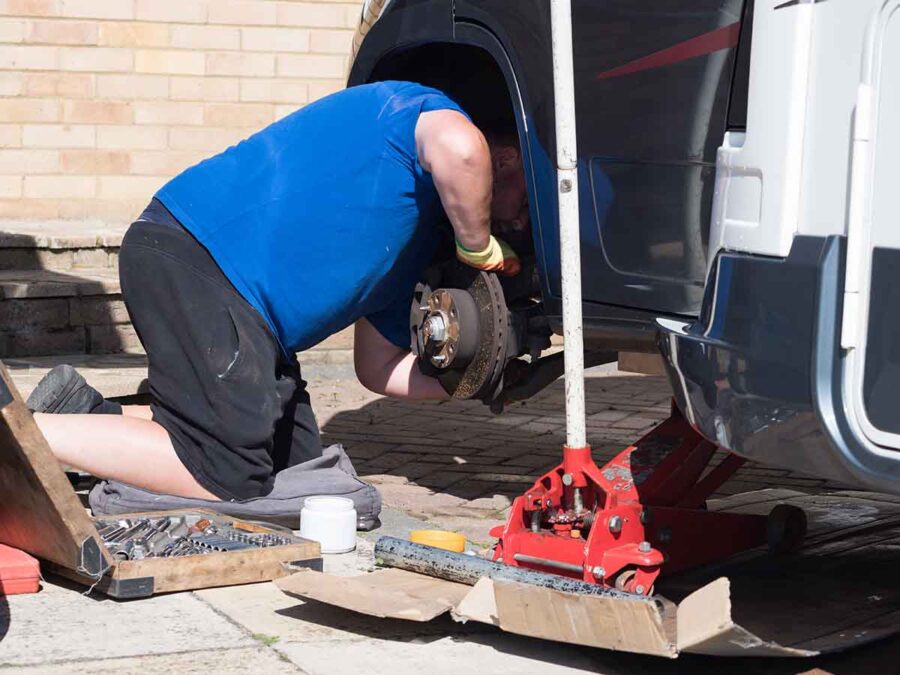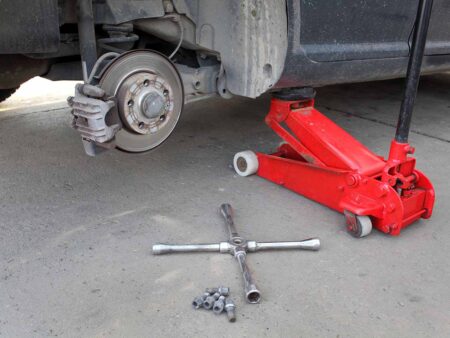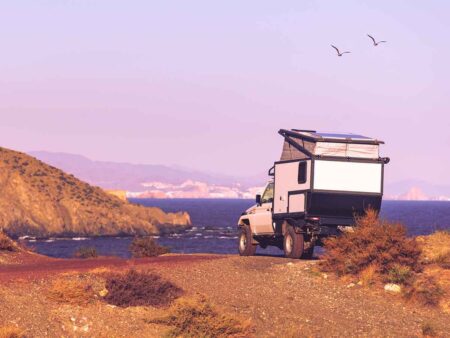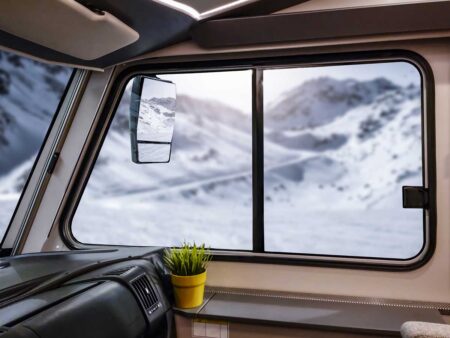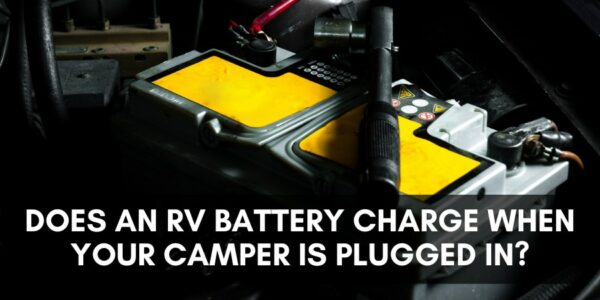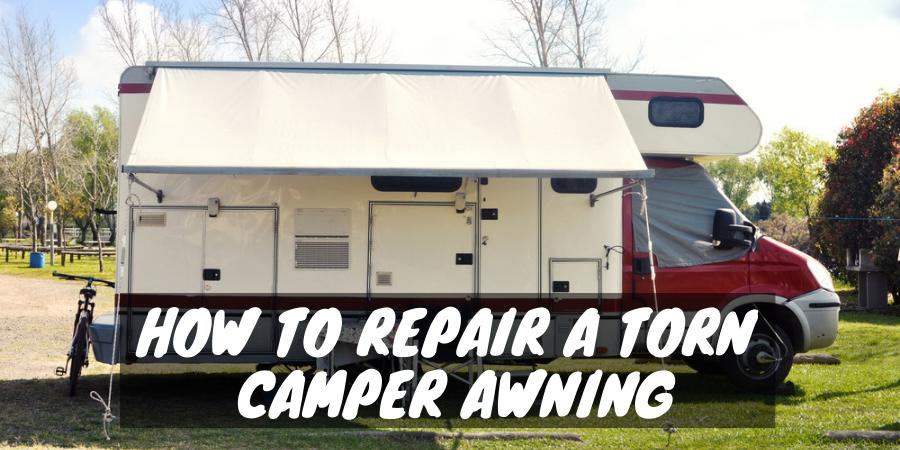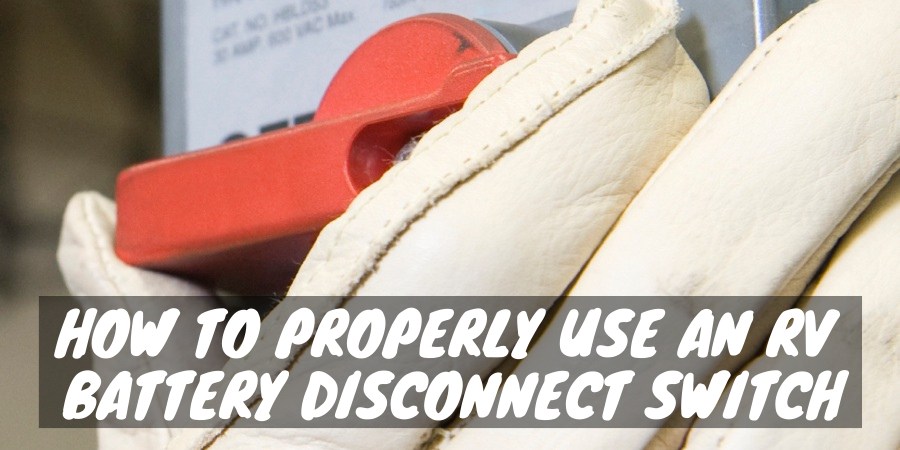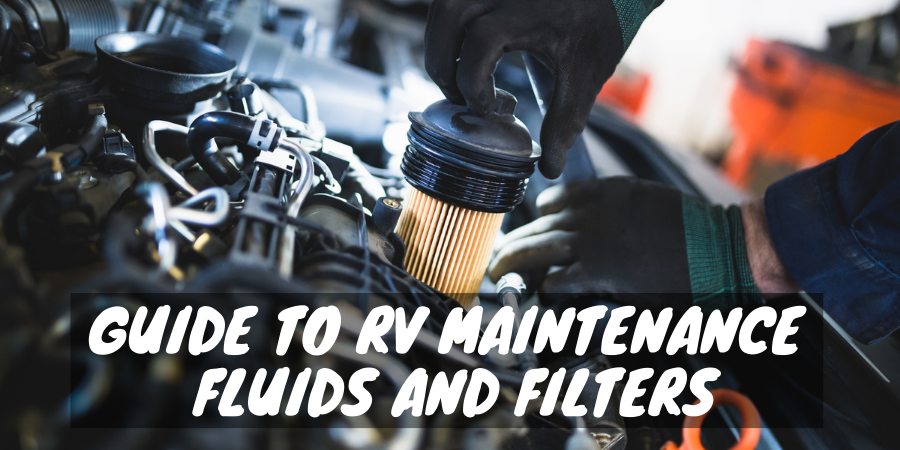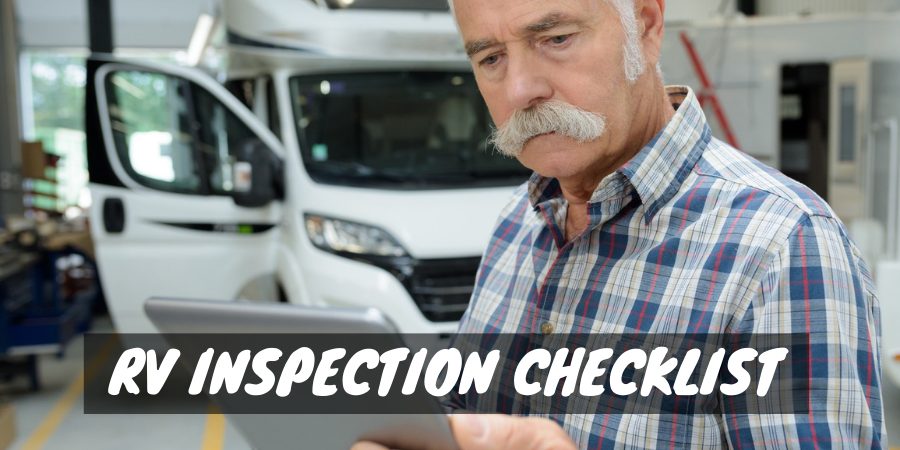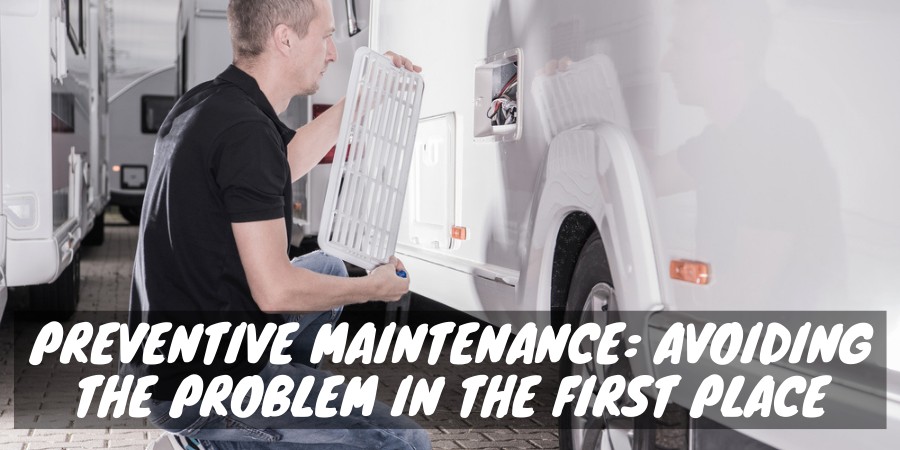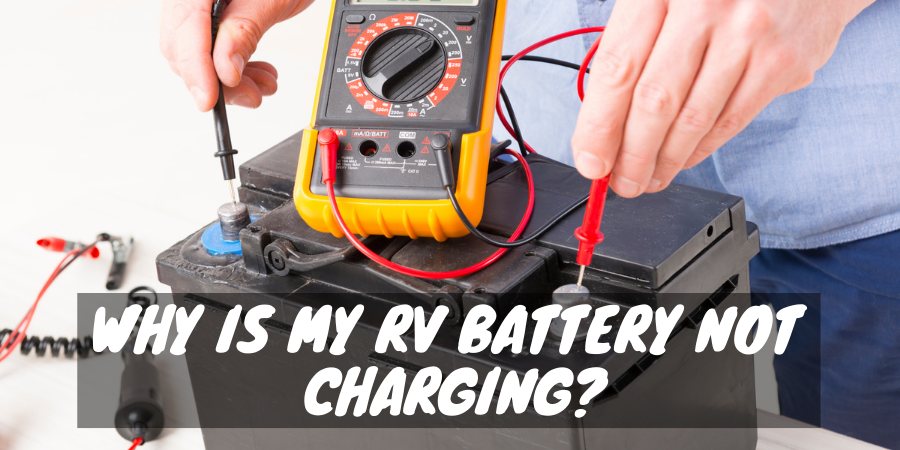Are squealing camper brakes giving you embarrassment every time you head out for a trip? Noisy brakes can be caused by many issues, including faulty or worn parts and weather conditions that create rust or stickiness.
To assist in reducing the squeaking of camper brakes and ensuring a quieter journey, we’ve compiled this guide. It not only explains the causes of noisy trailer brakes but also offers solutions to address the problem.
With the right trailer brake parts and maintenance, you’ll be able to enjoy peaceful camping adventures, so let’s begin!
Why Trailer Brakes Squeak
Squeaking disc or drum camper brakes can be from surface rust or glaze forming on the shoes or pads, so keep this warning in mind.
Most brakes are disc brakes. Disc brakes stop a vehicle or trailer by pressing a pad against a rotor or disc to create friction.
Drum brakes slow a wheel by pressing a brake shoe against a circular drum.
Reasons for Disc Brake Squeaking
Depending on how long your camper sits between uses, any brake noise could be as simple as dew or rain that causes enough slip for glazed pads or shoes to squeal for a short time until more friction forms after driving and braking several times.
Rust
Rust that forms on friction surfaces will also cause a grinding or squealing sound for a short period before a few firm braking actions knock off the loose debris.
The only way to prevent brake noise from quick-forming rust is to keep your camper in a garage with climate control, as high humidity can also create a rusty surface on metal brake parts.
In many instances of light rust on brake components, you can stop or reduce the squeaking by making several hard brakes from speed. This action should create enough heat and friction to clear the debris from the surfaces or pads.
Glazing
The glazing of trailer brake pads is from excessive heat generation that exceeds the limits of the pad’s material and creates a hard, glassy, and smooth surface.
In most instances, this is from making repeated hard stops at higher speeds, such as when driving down a very crowded highway. However, riding the brake pedal over long distances will also cause enough heat to glaze the pads.
Lastly, a stuck caliper can cause glazing by continuously pushing the pad against the metal.
After a time, a glazed camper brake pad will crack ( cause squeaking ) or break off entirely, reducing your braking ability and damaging your brake components, so be careful of this warning. Driving a camper around with heavily glazed pads can lead to deadly accidents.
You may hear a squeal from the brake under light braking situations or feel a vibration or shudder during a more routine stop.
If you suspect glazing on your pads, replace them. Some “experts” suggest rubbing the pad surface with sandpaper as a fix to break up the glossy surface. However, you should only use this fix in an emergency until you can get the brake pads replaced.
Thin Brake Pads
A squealing or screeching noise will also happen when disc brake pads have worn down enough to trigger the brake wear indicator. So, you’ll want to check the pads if you have disc brakes for squeaks that don’t go away after a bit of driving.
Many people are unaware that brake pad manufacturers add a metal tab to alert drivers that the pad is almost worn out. If you let brake pads wear down entirely, it will cause metal-to-metal contact that will reduce braking ability and damage the rotor, leading to a more expensive repair.
Sometimes, installing inexpensive brake pads with a high metal content will cause squeaking non-stop and is a great reason to pay for better quality pads. The best brake pads will have a high content of material such as rubber, Kevlar, resin, or fiber and only include fine metal particles.
Cheap brake pads have large chunks of metal in the material that will immediately cause that annoying high-pitch squeal once that metal touches the rotor. The noise will continue until you replace the pads with a better part, even if they are technically still of a viable thickness, and provide safe stops.
Another good reason to avoid budget brake pads is that the metal grinding on the discs will create dust that will discolor aluminum or chrome wheels.
Reasons for Drum Brake Squeaking
Drum brakes that need lubrication at the shoe and backing plate contact points will cause a high-pitch squeal from the dry metal rubbing together.
Cheap brake linings or an accumulation of dust in the drums can also cause noise.
The best way to prevent drum brake noise is to use a commercial-grade lubricant such as Moly Paste 60 on the contact points or a high-temperature wheel bearing grease.
You should also remove and clean any dust or debris from the drum assembly and replace the brake linings if lubrication doesn’t fix the problem.
How to Adjust Drum Brakes on a Trailer
You want your camper drum brakes to work as efficiently as possible without squeaking when stopping, so it’s common for them to need adjustment to either increase or decrease drag if any warning signs emerge. The proper brake setting will extend the life of the brakes and provide the most control over the trailer during towing.
Step 1. Chock Tires and Jack-Up Trailer
Chock the trailer wheels to prevent movement and jack up the camper or trailer high enough so the wheel you are working on can spin.
Step 2. Remove Adjuster Plug and Find the Adjustment Screw
Look on the backside of your drum brake assembly for two slim slots with a plug near the bottom edge. Use a slot head screwdriver to pry out the plugs and look inside for the adjustment screw, which looks like a gear with teeth. The screw can be behind either plug, depending on which side of the trailer you are working.
Step 3. Spin Wheel and Begin Adjustment
Start by spinning the wheel. After the wheel is spinning, place an adjustment spoon or screwdriver in the plug with the adjustment screw, hook a slot, and start moving the teeth upward and away from you.
Moving the teeth upward will create more drag on the tire as it expands the shoes. Keep moving the adjuster upward until you have difficulty turning the tire.
Next, stop the tire and spin it in the opposite direction while moving the adjustment screw downward eight to ten notches or until you feel a slight resistance on the spinning wheel.
Repeat this step on all other brakes on the trailer.
How To Adjust Electric Trailer Brakes (Video)
How to Break In New Camper Brakes
When you install new manual or self-adjusting electric brakes for your camper, it’s important to properly adjust and break them in. This ensures that the brake shoes and magnet are correctly seated within the drum, optimizing their performance.
Take the trailer to a very quiet road or a large empty parking lot. Set the brake controller to the middle or high setting so the brakes will fully engage when activated. Start driving until you reach 40 MPH, and then engage the manual override on your brake controller.
Do not push down on the tow vehicle’s brake during this time. You want to rely only on the trailer brakes to slow both units down to about 20 MPH, at which point you will accelerate back up to 40 MPH and repeat the process. It will take, on average, 30-40 sessions to break in new trailer brakes properly, and the brakes should be extremely hot and even smoking a little if you did it right.
What is a trailer brake controller, and how does a brake controller work? A brake controller is a box you mount in the tow vehicle cab with various settings and an electrical harness that runs to the trailer brakes. When you brake the tow vehicle, the controller sends a regulated amount of power to the trailer brakes to slow the wheel efficiently and safely.
You set up the controller and can adjust things like the trailer brake gain and braking sensitivity while also having the option to manually activate the brakes without braking the tow vehicle.
Camping Trailer Brakes
For the safest and most stable trailer towing, you’ll want to have brakes on your trailer wheels so you aren’t relying on your tow vehicle to handle the stopping forces of both.
Trailer brakes engage at the same time you apply the brakes to your tow vehicle, so both units slow simultaneously without the extra force of the trailer weight pushing on the hitch and causing possible failure.
Want to Connect With a Community of Over 1,078 RV Enthusiasts?
How much weight can you pull without trailer brakes? There are laws in some states that require trailer brakes when the weight hits 1,500 pounds. Once a trailer hits 3,000 pounds, there must be trailer brakes on all the wheel axles in most states.
Unfortunately, it’s up to the camping trailer owner to ensure laws are met, and many don’t know about them or don’t bother installing camper brakes on their travel trailer for warning safety if they begin squeaking. As a result, they get into trouble with the law and their insurance company when a preventable accident occurs due to a lack of trailer brakes.
Best Brake Controllers and Trailer Brakes
Husky Escort Electric Brake Controller
The Husky Escort brake controller is a top choice because it works for campers with one to three axles or two to six brakes. The design has a simple plug-in connector for quick installation and removal from the trailer and has short-proof protection.
The controller activates instantly upon the depression of the tow vehicle’s brake pedal and is fully functional in reverse. The digital display is easy to read, set, and adjust. In addition, it offers a vertical slide for manual braking, with the display showing the exact amount of braking force as a percentage of the total power.
Reese Brake Controller
The Reese brake control system BRAKE-EVN model is another popular choice for its one to four-axle capacity and the Boost feature that applies more initial braking to the camper when necessary.
The controller has an LED display for data, does not require leveling, offers reverse battery protection, and fits easily in the tow vehicle cab. Just plug it in and go camping.
Redarc Tow-Pro Elite Electric Brake Controller
The Redarc system gets high marks because it offers user-controlled and proportional modes with an Active Calibration feature.
The proportional mode setting is ideal for highway travel using inertia sensing to safely control trailer speed when braking. You can also opt for the user-controlled mode and adjust the force your vehicle needs for optimal towing control.
The system is compact and straightforward to set up and use in minutes.
Southwest Wheel Electric Trailer Brakes
These 10-inch trailer brakes get high ratings for their ability to fit many popular trailer axle manufacturers such as Dexter, Al-ko, and Quality and provide years of reliable operation.
The brakes come fully assembled and inspected and have four mounting holes with all hardware included with purchase for quick and easy installation.
M-Parts Electric Trailer Brakes
These self-adjusting trailer brakes are another top seller due to their 12-inch size and five-bolt pattern that works with 5,200-pound, 6,000-pound, and 7,000-pound Dexter, Al-ko, Rockwell, Quality, and Lippert trailer axles.
They do require manual adjustment, and the kit includes adjuster plugs.
Libra Hydraulic Trailer Brakes / Surge Brakes
The Libra 10-inch hydraulic brake assembly pair will work with most 3,500-pound trailer axles currently on the market. The components have a durable, corrosion-resistant DACROMET coating, have a four-hole bolt pattern, and come with aluminum or stainless steel hardware and parts.
Customers love the easy, harness-less installation and the more powerful stopping power hydraulic brakes provide versus electric trailer braking systems.
How to Change Camper / Trailer Brakes (Video)
Camper Brake Wrap-Up
Squeaking camper brakes can be an annoyance from light rusting of components or be something more serious that requires immediate repair to avoid braking accidents.
Knowing the causes of camper brake noises and buying the right trailer brakes and controller will allow you to travel with less stress.
We hope you found this information useful to pinpoint the warning of your squeaking camper brakes and will consider some of our top brake and controller picks so you can reach all your camping destinations safely!
"Man cannot discover new oceans unless he has the courage to lose sight of the shore."
-- Andre Gide

